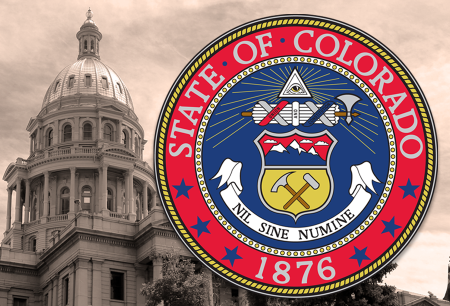Colorado has introduced House Bill 25-1119, a proposed law that would require large businesses operating in the state to publicly disclose their greenhouse gas (GHG) emissions. The bill, introduced on 28 January by Democratic Representative Manny Rutinel, is currently scheduled for review by the House Energy & Environment Committee on 20 February.
The legislation is part of a broader trend among Democratic-led states to strengthen corporate climate accountability. In late 2023, California enacted the Climate Corporate Data Accountability Act, with the first disclosures due next year. A similar emissions reporting bill has also been reintroduced in New York. However, Colorado’s proposed framework introduces more prescriptive and phased disclosure requirements, making it stricter in some respects than the California Act.
The Colorado bill would apply to businesses operating in the state with annual revenues exceeding $1 billion, including revenue from subsidiaries. It mandates phased Scope 1, Scope 2, and Scope 3 emissions reporting, with deadlines beginning in 2028. Companies would be required to disclose Scope 1 and 2 emissions, which cover direct emissions and indirect emissions from purchased electricity, annually from 1 January 2028. Scope 3 emissions, which include indirect emissions from the value chain, would be phased in over three years, starting in 2029, with full disclosure requirements in place by 2031. Unlike the California Act, the Colorado bill requires calendar year-based rather than fiscal year-based disclosures.
Companies would be required to calculate emissions data using the Greenhouse Gas Protocol Corporate Accounting and Reporting Standards. Third-party verification of emissions data would be mandatory, although the bill does not specify whether a limited assurance or reasonable assurance standard would apply. The Colorado Air Quality Control Commission would be responsible for developing regulations to implement the law, including possible adjustments to reporting deadlines. Unlike California, Colorado’s bill does not explicitly mandate that emissions data be submitted to a third-party register or that companies pay an annual compliance fee, though these provisions could be introduced through subsequent regulations.
The bill includes provisions addressing potential legal challenges, particularly regarding First Amendment rights. If a company believes that disclosing specific emissions data violates its freedom of speech, it would be required to notify the Colorado Attorney General at least 30 days in advance. If an agreement cannot be reached, the Attorney General could order disclosure.
Penalties for non-compliance could be severe, with fines of up to $100,000 per day for violations. Unlike the California Act, the Colorado bill does not impose a cap on financial penalties, potentially exposing businesses to significant financial risk.
A company meeting the emissions disclosure requirements of another state or country would be considered compliant in Colorado if those regulations are deemed equally stringent. This provision could simplify reporting for multinational corporations already adhering to emissions disclosure laws elsewhere.
With the bill now under committee review, further amendments or clarifications may be introduced before it advances through the legislative process. If passed, Colorado would join California and other states in mandating corporate emissions disclosures, potentially influencing future federal climate reporting policies in the United States.





















